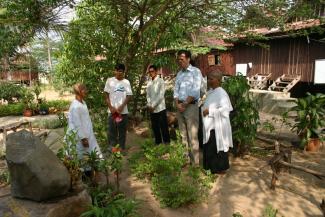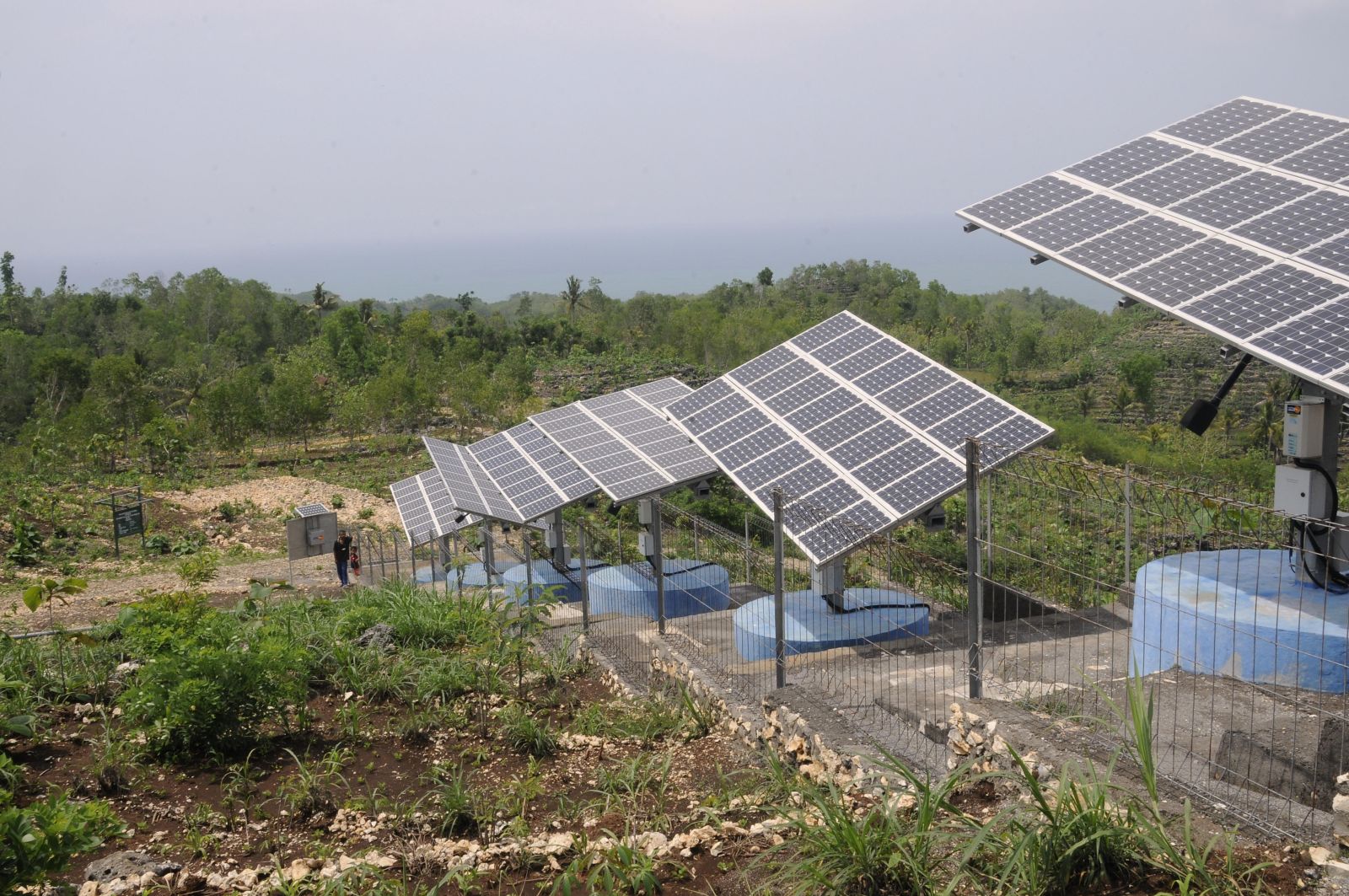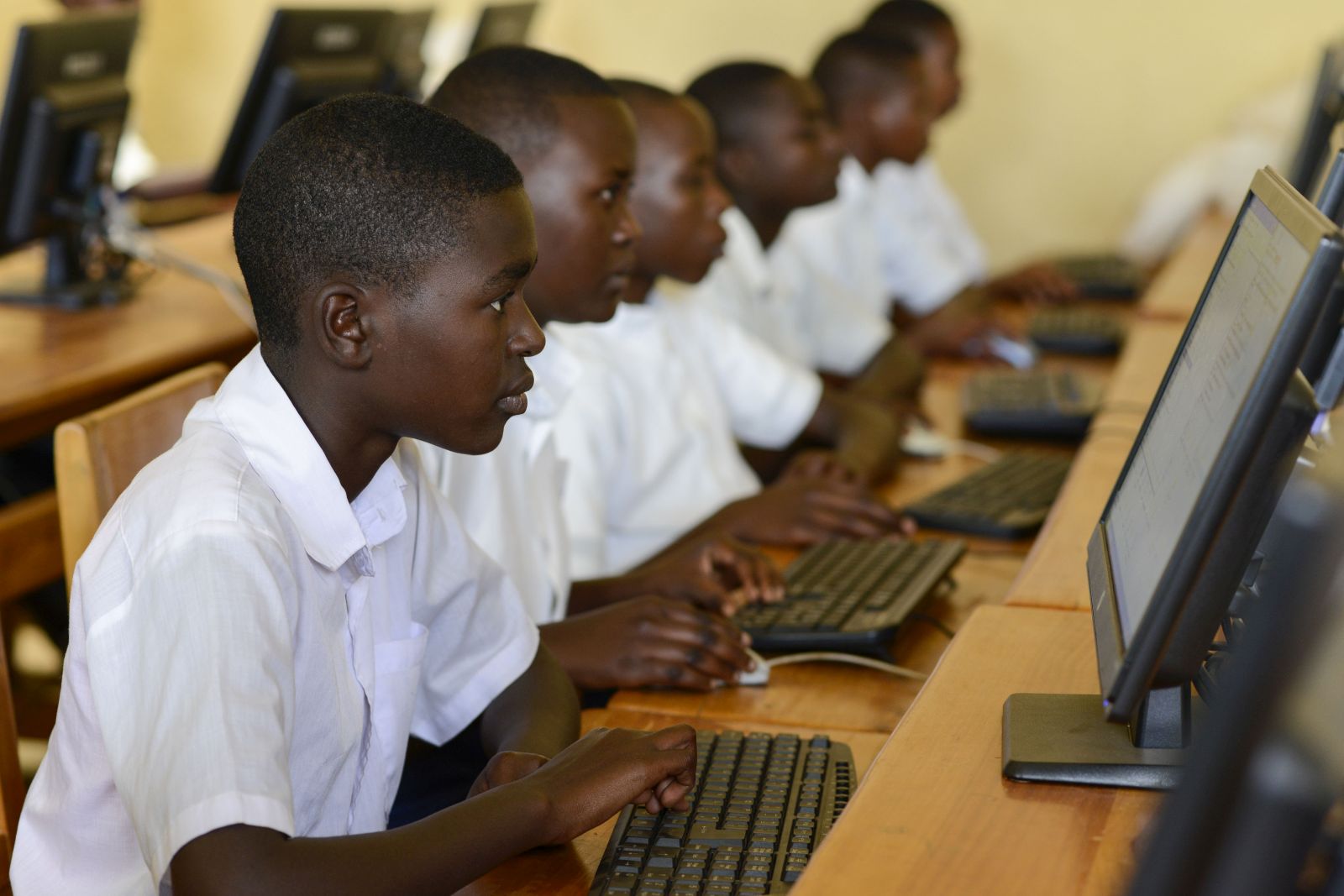Qualifications
Development service as a place of learning

The study “Entwicklungsdienst qualifiziert” (which loosely translated means “development service teaches you something”) was published by AGdD last year. It has a double focus:
- First of all, it investigates how professionals learn and adopt new skills over the course of their assignments so they can meet the challenges they face.
- Second, it recognises the period of service as an important chapter in an individual’s learning biography, during which professionals acquire valuable knowledge for their future careers.
The authors interviewed 42 professionals, consulted over a dozen education experts and assessed the latest research on non-formal and informal learning.
The study comes to a positive conclusion, arguing that Germany’s government-approved development service providers as well as institutes of further education are providing professionals with good or very good support. That is so before, during and after assignments. In line with the double focus, the study issued recommendations in two main areas:
- How can professionals’ learning and skill acquisition be more effectively supported while they are on assignment?
- What options are there for documenting the experience, knowledge, proficiencies and skills gained?
Keep learning
Nowadays, development workers increasingly serve as advisers. However, they can only obtain a limited amount of the knowledge they need during three-to-five days training courses (DEval 2015). Most of their learning actually happens on the job. Ideally, the working practice will go hand-in-hand with continual improvements in their advisory skills. The study especially focussed on two ways to better support self-directed learning among development workers: autodidactic skills should be explicitly cultivated during the training, and agencies should do more to support their staff’s learning during assignments in partner countries. Convincing schemes would do both.
The study suggests that training courses should devote more time to “learning how to learn”. That would include information on how individual and collective learning is achieved in general. Moreover, one’s own learning behaviour should be considered. Professionals who understand their personal style of learning – including what motivates them – are better able to organise themselves and will make more targeted efforts. Professionals should acquire suitable learning strategies and methods. Of particular importance are partner and group learning methods like dialogic learning, peer consultation, theme-centred interaction as well as intervision, supervision and coaching.
Professionals obviously depend on support from their employers. Good support for learning in the field starts with an accurate definition of the project objectives, including tasks and infrastructure for the job assignment. Supervisors should see themselves as their employees’ learning coaches, and staff deserve to be offered inter- and supervision regularly. Moreover, platforms for virtual learning and collaboration are becoming ever more relevant, and they should be closely linked to agencies’ knowledge management.
Additional “soft factors” matter too. Most of the professionals interviewed emphasised how motivating it was to discuss successes and failures openly – whether with supervisors in the field, colleagues during conferences or other people, even on vacation. A healthy learning culture gives professionals some say in decision-making. Their interim and final reports must be read and evaluated.
Learning Networks
Several challenges matter, and it makes sense to think in terms of “transformative learning networks” (Goldstein et al. 2017). Learning networks are voluntary, non-hierarchical and collaborative, and they involve more than one organisation. The goal is to boost learning as a means to drive social change. All partners that are involved in the planning and implementation of cooperative efforts are part of the network. Along with all other participants, development agencies must assume responsibility for everyone’s learning success. In transformative learning networks, those who initiate and coordinate joint activities play key roles. Such people are called “netweavers”. On site, agency managers, representatives of partner organisations or the development workers themselves can serve as netweavers. Steering committees made up of several people make sense too.
After returning home
Particularly for professionals who are on their first assignment abroad, it is a formative experience to spend several years working in development assistance. In this time, they learn a great deal and must prove themselves in challenging conditions. This is true in regard to work as well as personal lives. As a result, development workers broaden and solidify their professional profile. Some people use their service period as a launch pad for an entirely different career. When development workers come home, it is therefore important to offer them support to identify the skills they have acquired. To some extent, AGdD seminars are serving this purpose. The organisation has assumed responsibility for assisting those who have completed their assignments. Some professionals, moreover, make use of employment agencies or privately financed counselling services to identify their strengths and weaknesses and/or compile a skills profile.
The AGdD study recommends that professionals document in a clear and verifiable way the skills and knowledge they have acquired on assignment. Doing so improves their career opportunities and educational perspectives at home. So far, such information has been presented at best in a rudimentary way in the letters of reference that German employers write for former staff members. Of course, professionals can draft skills profiles themselves and hand them in when applying for a job.
The best way to help professionals to document experiences, knowledge and skills is probably to issue something like a skills passport. The ProfilPASS is a model (Hülsmann, 2018). It certainly makes sense to tackle related issues right from the start. Professionals should develop a good sense of their strengths and weaknesses early on. They would be well-advised to direct their own learning efforts in a systematic manner and to document achievements in a timely fashion. When they return home, they once more deserve advice from their agency on these matters. Their experience and professional qualifications should be summarised in an official and professionally compiled document.
Gabi Waibel is the managing director of the Association of German Development Services (AGdD).
gabi.waibel@agdd.de
Lutz Schrader is a freelance author, consultant and evaluator, who focuses on peace and conflict research, development cooperation and adult education.
schrader.lutz@t-online.de
References
AGdD, 2017: Entwicklungsdienst qualifiziert. Wie Fachkräfte lernen und ihre Kompetenzen entwickeln. Bonn: Arbeitsgemeinschaft der Entwicklungsdienste (AGdD). (Only in German)
https://www.agdd.de/fileadmin/user_upload/Davor/Studien/AGdD_Studie_Entwicklungsdienst_qualifiziert.pdf
DEval, 2015: Entwicklungshelferinnen und Entwicklungshelfer. Ein Personalinstrument der deutschen Entwicklungszusammenarbeit. Bonn: Deutsches Evaluierungsinstitut der Entwicklungszusammenarbeit (DEval). (Only in German)
https://www.deval.org/fileadmin/Redaktion/PDF/05-Publikationen/Berichte/2015_Entwicklungshelfer_und_Entwicklungshelferinnen/DEval_Evaluierung_EntwicklungshelferInnen_2015_DE.pdf
Goldstein, B. E., et al., 2017: Transformative learning networks: Guidelines and insights for netweavers. A report from the Network of STEM Education Centers (NSEC).
http://www.aplu.org/projects-and-initiatives/stem-education/stem-education-centers-network/Goldstein_paper.pdf
Hülsmann, K., 2018: Interview with Katrin Hülsmann of the German Institute for Adult Education (DIE) about working with skill passports in development service. (Only in German)
https://www.agdd.de/de/danach/berufliche-rueckkehr/kompetenzbilanz/interview-profilpass












